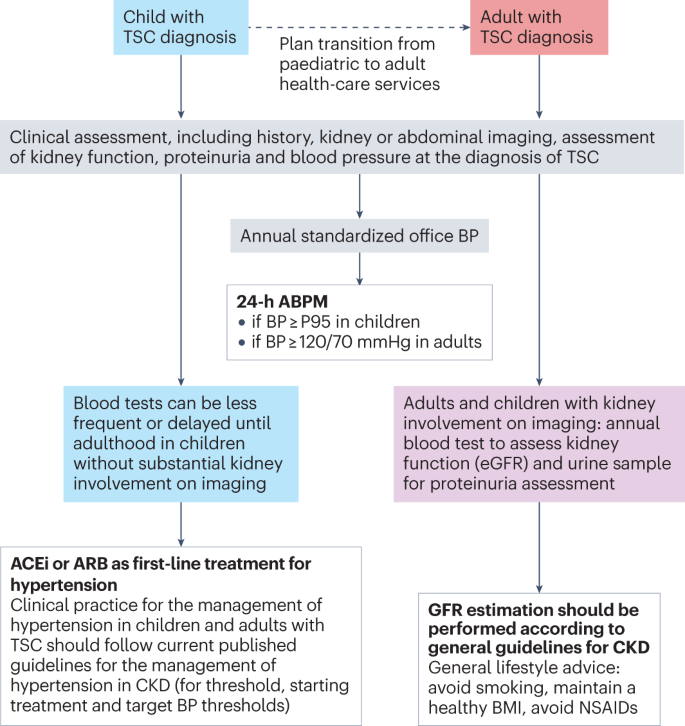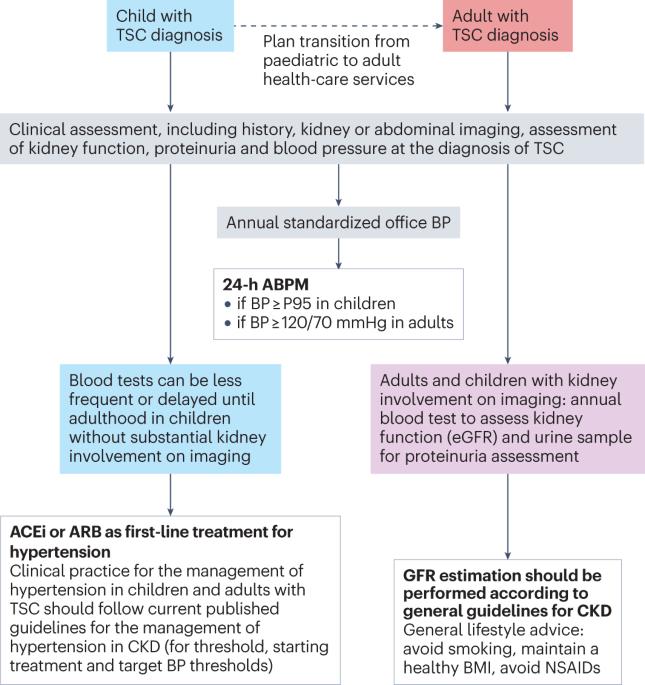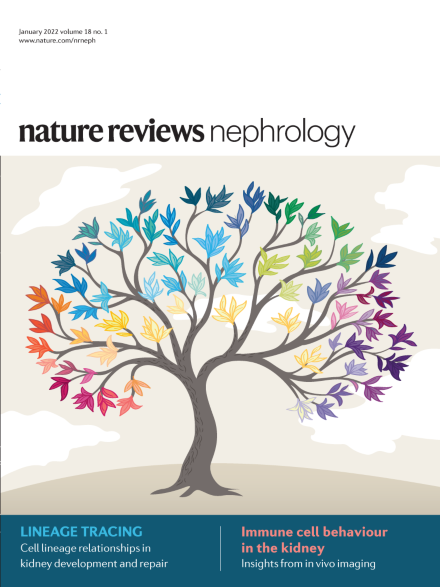结节性硬化综合征肾脏受累的临床实践建议:ERKNet 常染色体显性结构性肾脏疾病工作组和 ERA 基因与肾脏工作组的共识声明
IF 28.6
1区 医学
Q1 UROLOGY & NEPHROLOGY
引用次数: 0
摘要
结节性硬化综合征(TSC)是一种常染色体显性遗传疾病,其特征是全身出现增殖性病变。TSC的治疗具有挑战性,因为患者患有多方面的系统性疾病,对神经系统和发育有显著影响,并可能出现严重的肾脏、心脏和肺部表型;然而,每个器官系统都可能受累。要为 TSC 患者提供充分的护理,需要由临床医生和辅助人员组成的多学科团队通力合作。本临床实践建议由肾脏科医生、泌尿科医生、儿科放射科医生、介入放射科医生、遗传学家、病理学家以及患者和家属团体代表共同制定,重点关注与 TSC 相关的肾脏表现。通过影像学手段仔细监测肾功能和评估肾脏结构病变,可以及早采取干预措施,通过有针对性的方法保护肾功能。在此,我们总结了目前的证据,并就TSC肾脏受累的多学科管理提出了建议。本文章由计算机程序翻译,如有差异,请以英文原文为准。


Clinical practice recommendations for kidney involvement in tuberous sclerosis complex: a consensus statement by the ERKNet Working Group for Autosomal Dominant Structural Kidney Disorders and the ERA Genes & Kidney Working Group
Tuberous sclerosis complex (TSC) is an autosomal dominant disorder characterized by the presence of proliferative lesions throughout the body. Management of TSC is challenging because patients have a multifaceted systemic illness with prominent neurological and developmental impact as well as potentially severe kidney, heart and lung phenotypes; however, every organ system can be involved. Adequate care for patients with TSC requires a coordinated effort involving a multidisciplinary team of clinicians and support staff. This clinical practice recommendation was developed by nephrologists, urologists, paediatric radiologists, interventional radiologists, geneticists, pathologists, and patient and family group representatives, with a focus on TSC-associated kidney manifestations. Careful monitoring of kidney function and assessment of kidney structural lesions by imaging enable early interventions that can preserve kidney function through targeted approaches. Here, we summarize the current evidence and present recommendations for the multidisciplinary management of kidney involvement in TSC. Care for patients with tuberous sclerosis complex (TSC) should be coordinated by a multidisciplinary team. This Consensus Statement, which involved input from nephrologists, urologists, geneticists, radiologists, interventional radiologists and pathologists as well as patient representatives, provides an overview of TSC-associated kidney manifestations and outlines current recommendations for the management of kidney involvement in TSC.
求助全文
通过发布文献求助,成功后即可免费获取论文全文。
去求助
来源期刊

Nature Reviews Nephrology
医学-泌尿学与肾脏学
CiteScore
39.00
自引率
1.20%
发文量
127
审稿时长
6-12 weeks
期刊介绍:
Nature Reviews Nephrology aims to be the premier source of reviews and commentaries for the scientific communities it serves.
It strives to publish authoritative, accessible articles.
Articles are enhanced with clearly understandable figures, tables, and other display items.
Nature Reviews Nephrology publishes Research Highlights, News & Views, Comments, Reviews, Perspectives, and Consensus Statements.
The content is relevant to nephrologists and basic science researchers.
The broad scope of the journal ensures that the work reaches the widest possible audience.
 求助内容:
求助内容: 应助结果提醒方式:
应助结果提醒方式:


